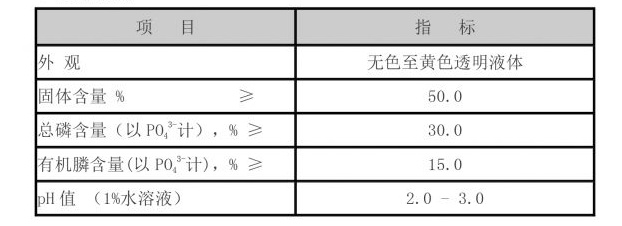Effective Water Treatment Solutions Using HEDP for Optimal Results
HEDP in Water Treatment An Overview
Water treatment is a critical process that ensures the supply of clean and safe water for various uses, including drinking, industrial applications, and agricultural practices. Among the numerous chemicals employed in water treatment, Hydroxyethylidene Diphosphonic Acid (HEDP) has gained significant attention due to its effectiveness as a scale inhibitor and corrosion inhibitor. This article explores the role of HEDP in water treatment, its benefits, and its applications.
HEDP in Water Treatment An Overview
One of the primary applications of HEDP in water treatment is in cooling water systems used by power plants and industrial facilities. These systems are prone to scaling and corrosion due to high temperatures and the presence of various minerals. By adding HEDP to the water, power plants can reduce the rate of scale deposition on heat exchangers and cooling towers, ensuring smooth and efficient operation. Moreover, HEDP’s corrosion-inhibiting properties help protect metal surfaces from oxidative damage, further enhancing system longevity.
hedp water treatment

In addition to industrial applications, HEDP is also widely used in municipal water treatment facilities. The compound helps in minimizing the leaching of heavy metals from pipes into drinking water, addressing concerns about water safety and public health. Because it effectively sequesters metals, HEDP can prevent their precipitation, which is crucial in maintaining water quality.
Another advantage of using HEDP is its environmental compatibility compared to other treatment chemicals. With increasing emphasis on sustainable practices and environmental protection, HEDP stands out as a favorable option since it is less harmful to aquatic life and poses lower risks to ecosystems.
The versatility of HEDP extends to its use in various other applications, including cleaning products, detergents, and oil-field applications. In cleaning formulations, HEDP serves as a builder, enhancing the cleaning efficiency by preventing the re-deposition of soils and particles.
In conclusion, HEDP plays a vital role in water treatment processes, proving to be an effective scale and corrosion inhibitor. Its applications across industrial and municipal sectors underscore its importance in enhancing water quality and operational efficiency. With its environmentally friendly profile, HEDP aligns with the modern demand for sustainable water treatment solutions. As industries continue to seek ways to optimize their operations while safeguarding public health and the environment, HEDP is likely to remain an essential component of effective water treatment strategies.
-
Water Treatment with Flocculant Water TreatmentNewsJun.12,2025
-
Polymaleic AnhydrideNewsJun.12,2025
-
Polyaspartic AcidNewsJun.12,2025
-
Enhance Industrial Processes with IsothiazolinonesNewsJun.12,2025
-
Enhance Industrial Processes with PBTCA SolutionsNewsJun.12,2025
-
Dodecyldimethylbenzylammonium Chloride SolutionsNewsJun.12,2025





